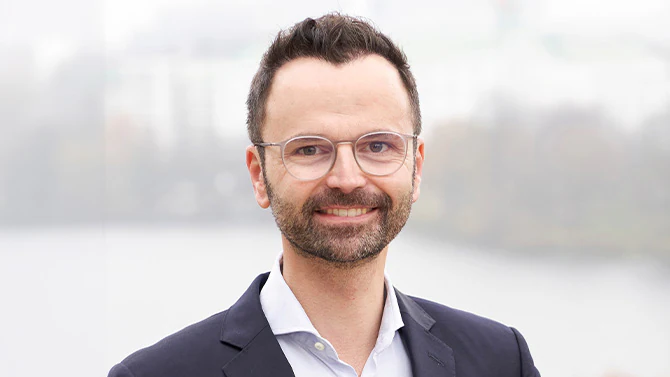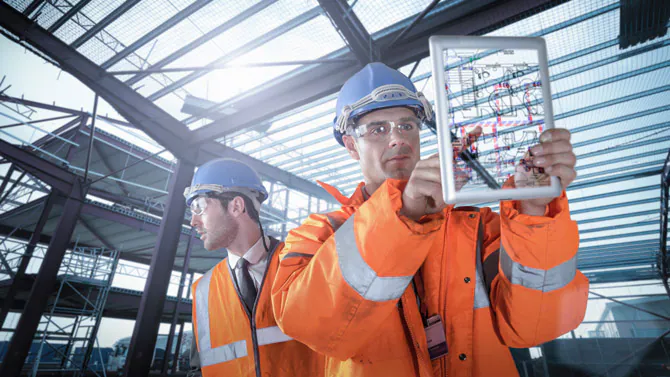An interview with Hendrik Reese. Our PwC expert explains the possibilities of AI and technology in infrastructure projects.
About Hendrik Reese: Hendrik Reese is a Partner at PwC Germany with focus on Responsible AI. He supports clients from various industries in the operationalisation of robust, resilient, secure and reliable AI use cases - with focus in sensitive environments. He supports various ecosystem and venture activities as well as startups in regards to their AI market maturity. As a business driver, he is owner of our joint venture CertifAI – the world’s first TIC company for AI-based physical products.

What do you think about the current hype around artificial intelligence?
Hendrik Reese: ChatGPT and generative AI are neither the start nor the end of AI’s evolution. The latest developments have brought many technological breakthroughs of recent years to the surface. For me, it is particularly important to stress out that the field of AI is much larger than the one of generative AI, which means that the potential of AI is immense.
What role does AI play in infrastructure projects?
AI can be used in a wide variety of ways in infrastructure projects – to name a few examples: During the planning phase, AI can identify patterns from (historic) data and thus allow for better and more effective planning. When it comes to infrastructure monitoring, AI can use sensors to help detect the state of buildings, roads and bridges and identify problems at an early stage. The possibilities are tremendous for energy efficiency.
What role do new technologies play and what trends have you spotted?
Reese: Technological developments are rapidly gaining momentum. This applies both to the performance of algorithms and to the sensors involved at the infrastructure level. In my opinion, a very impressive example is what digital twins, i.e. digital representations of processes or physical assets, can achieve in simulation and monitoring. They can be used to detect problems on construction sites, during planning or in assets at an early stage.
How do you support clients in the AI transformation?
We provide support at all stages: from strategy, brainstorming and prioritisation of use cases through the implementation and scaling of AI. It is particularly important for me that we instil trust in the AI transformation right from the start and thus lay the groundwork for sensitive use cases.
What does the first step look like for AI?
Reese: Many companies think too much about the basics and structures. The best way to start the AI transformation is to take the first steps. In practice, a lot of data is already available or can be pooled from existing systems or collected by sensors. Recent AI methods also enable the development of algorithms from processes by means of “observations”, called reinforcement learning. It is important that AI use cases create immediate added value and thus spark the appetite for more. In my experience, AI deployment scales quickly – based on positive experiences and best practices in the organisation.
Additional interviews

Accelerating infrastructure projects
PwC expert Martin Zündorf explains how infrastructure projects can be accelerated.

“ESG is a key element of modern infrastructure projects”
PwC expert Robert Kammerer on the role of ESG in modern infrastructure projects.
Contact us


Christian Elsholz
Partner, Capital Projects, Infrastructure & Real Estate, PwC Germany
Tel: +49 151 16770951

Rebekka Berbner
Partnerin, Capital Projects, Infrastructure & Real Estate, PwC Germany
Tel: +49 171 7836364







